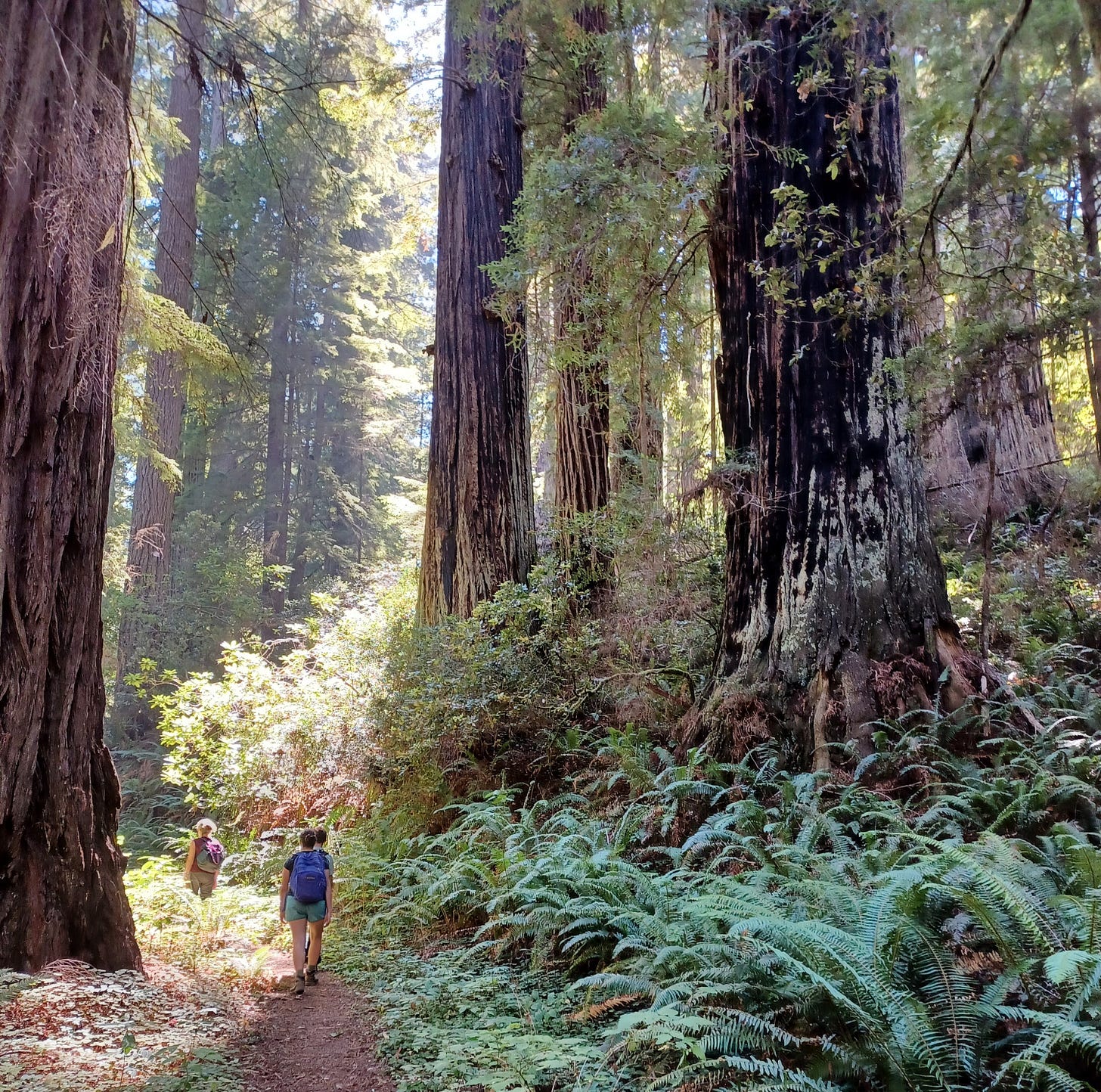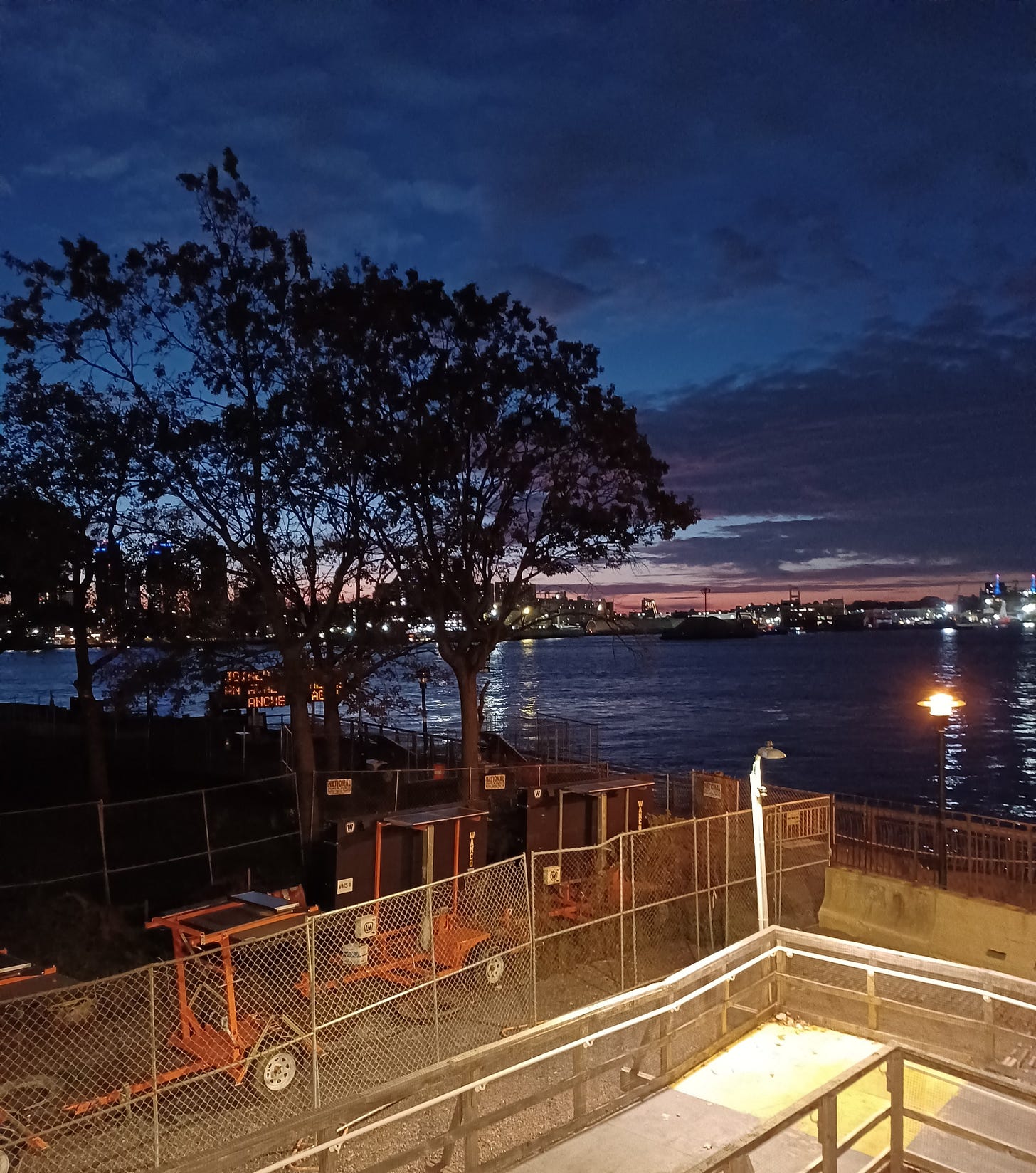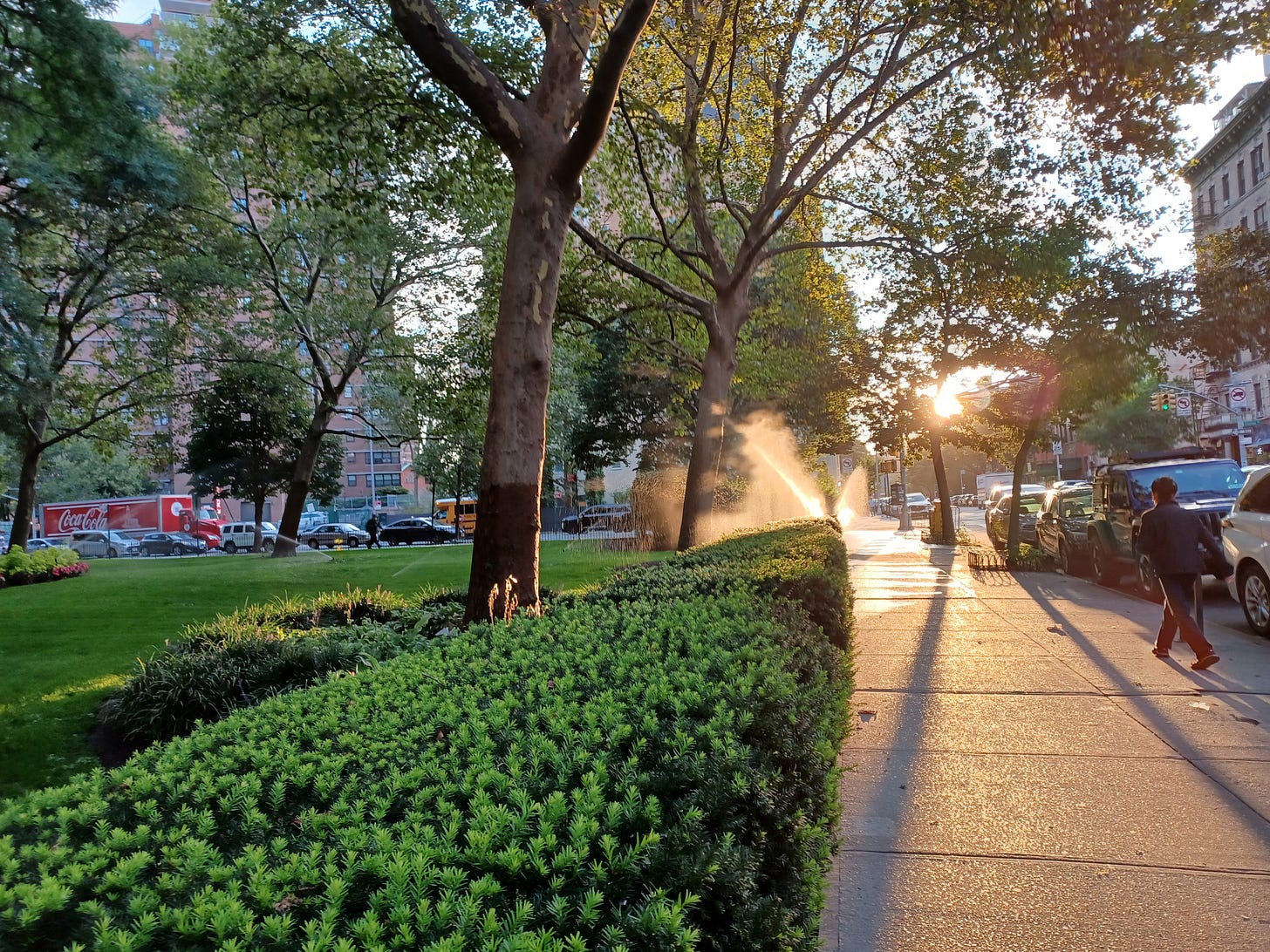In some places, like Van Damme State Park in Little River, California, humans seem like specks in the system and the effect reads as awe.
But in others, like this one, humans seem like flecks in an engineered storm. Consider the following eensy episode and whether you see marks of the same sickness that drives political lie-mongering and political murder. Here goes:
A friend lives in a large apartment complex. Cleaning out a closet, she notices a peewee-sized tennis racket, vintage. The racket’s owner used it for a few months and is now 15. The friend posts on a listserv for parents to see if anyone wants the racket. One person does. Over email, my friend and the neighbor determine when my friend will be home. After 7 pm. The person wanting the racket emails the friend at 8:47 pm. She is about to head over, so the racket should wait outside the door. The friend goes through the evening without looking at her phone, then sees the email at about 10:30. The person never knocks or rings the bell.
What would have gone differently if my friend had posted that the racket would go to the first person who responded and who knocked on the door to claim it?
A new section of waterfront park in my neighborhood opens 13 years after waves during Superstorm Sandy flooded the old park. It’s brighter, gets you closer to the river, and offers much more lawn space than the older park did. It also contains what look like desks at an angle to the shore. On a sunny Sunday, people in their teens and 50s and 60s are at the park’s new tables, staring at screens.
What would Manhattanites have said if the new park had come with picnic tables rather than workstations?
Another professional in my coworking space sits all day with ChatGPT open on the right side of her screen. She’s hardly alone. I keep thinking of a logical failure. The fact that engineers have developed AI that can help scientists model monsoon season or sequence carcinomas doesn’t dictate that CEOs market AI that obviates human-composed thank-you notes.
More moments will follow.
Default settings sway a lot of decisions and impressions. I started thinking about climate change in a warm November 1988, a few months after a scientist testified in Congress about a greenhouse effect. In my first presidential election four years later, I voted for a charismatic young Southern governor who said he would run the country like a corporation. He and his running mate, what with Earth hanging in the balance and all, could have promised to put everyone to work shoring up the shoreline and powering up the energy transition. They chose otherwise.
Now, plenty of experts have charted how Clinton and Democrats in Congress swore by a free-trade and financial playbook. Jigar Shah has argued that Clinton-era trade policy fumbled a chance to build clean-energy manufacturing at massive scale in the USA. You could make a similar case for physical adaptation projects on the coasts and in drought-prone areas. In 1996, Clinton and Gore won decisively and promised to invest in “an information superhighway.”
Looking back, it seems like there was a moment when people of reputation and people of integrity knew that the real world was at the precipice of becoming a much harsher place to live. We could have chosen at any time to invest in a bonanza of real-world work to rework slopes and hills, build out clean energy that spurs clean air, train people to support each other through storms and droughts. Or we could have chosen to invest in building out the unreal world, empowering a few antihumanists to exploit people’s need for affirmation and instant comfort.
A cynic today would say we chose to send everyone into la-la land and let the real LA catch fire. I’m no cynic, but I do urge us to alter our policies’ default settings.
As a generalist, I get Romantic about quotidian things, like this view on my way home from my neighborhood park on Friday morning. It’s the sprinklers at my apartment complex watering the lawn. It’s also a ray of light. To me, that surprise in physical or ethereal or otherwise unbordered form has no replacement. Again, I welcome AI that can model the way cancer cells fold or simulate rainforest depletion. I rebut AI that aims to replace my walk down the street or to sell me something. That starts, as I suggested earlier, with a sense of openness to the atoms around you.
So what if local policy nudged people to prioritize personal time? Maybe chain pharmacies would receive a tax incentive for hiring in-store staff and could try charging higher prices for deliveries. Or sandwich shops can charge you a dollar less if you order from the live organism behind the counter instead of the kiosk near the door. If people choose to stay home and transact through their screens, they should freely do so. But that kind of exchange involves a new kind of market, and you can argue that it should carry its own price to answer to the social cost of isolation.
Maybe tickets to ballgames and boxing matches can come with rebates or free merch if you attest that you sat through the whole thing and didn’t bet on any of it1. Maybe landlords can write the cost of publicly available play equipment off their property taxes and can let tenants do something similar with rent. Maybe when you rent a car or truck you can tick a box to donate to local sports, parks, or clean-air efforts in the community you’re visiting. And maybe companies can pay staff a little more if they go through paperwork face-to-face with customers who prefer doing things that way.
My friend eventually did hand off the racket to the neighbor who wanted it. She reports that the neighbor seemed very nice: likely it was just the default use of email that made ringing the bell seem less than obvious. And I am remembering each day to pay closer attention to my own defaults.
On my way home from work last week, about 15 preschoolers with three adults were crossing Driggs Avenue. While a lot of preschool staff require kids to walk holding a harness with plastic rings that looks like a long leash, these kids were just holding each other’s hands. As I watched from my bike, I heard a driver lean on a horn, not staccato or blurty, just as if that were the only thing to do. The honking never stopped, drowning out a preschool teacher. I decided to stand up for the kids.
I biked over to the first driver I saw: a guy about my age or a little older, with teardrop glasses and thinning hair. “We’re honking at the two-year-olds?” I said into the open window.
He shakes his head. “No, that’s him.” He points his thumb to the car behind his. The driver there is young, tall, with expensive-looking blackout sunglasses. “I’m happy,” he says about the wait, suggesting he is in no hurry to get where he is driving. We both laugh. I apologize. The young driver behind him keeps honking, windows closed and face flat, as the last kid crosses the street.
I pedal over to this car, about to harangue the driver. But I think better of it. We wouldn’t be having a conversation. My default says that when you can’t talk without screens (including windscreens), it’s a lot of work to successfully communicate.
Even Mets fans have started leaving the park awfully early.





It's a hard time to be a Mets fan.